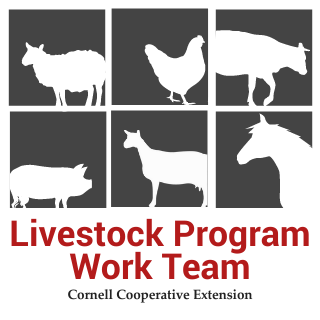Help Stop Avian Flu – Take Down Your Bird Feeders!
Cornell Cooperative Extension shares why taking down bird feeders can help stop the spread of Highly Pathogenic Avian Influenza
by Amy Barkley, Livestock and Beginning Farm Specialist with the SWNY Dairy, Livestock, and Field Crops Program
SOUTHWEST, NEW YORK (March 18th, 2022) Highly Pathogenic Avian Influenza (HPAI) is a serious, fatal disease of poultry that is at top of mind for many. Since the beginning of the year, it’s been identified in over 350 wild birds in 20 states, including New York. New York has also had 3 cases of HPAI to date in backyard poultry flocks, which resulted in the death of 268 birds. It is up to us as good friends and neighbors to help protect domestic poultry flocks. One of the ways that we can do this is to take down our wild bird feeders for a little while.
While this disease is mostly carried by wild waterfowl, research has shown that other wild bird populations can carry it too, especially if they share nesting and feeding grounds with wild waterfowl. These populations include perching birds and songbirds. For this reason, we are recommending that folks that feed wild birds who also have poultry at home or who work with poultry take down their bird feeders until the threat of the disease has passed.
It is uncertain as to when it will be safe to put feeders back out, but scientists believe that case loads should decrease over the summer months. The highest risk of spreading the disease is now, during the spring migration. That said, this is a disease of the colder months, and we may see cases spike again during the fall migration.
For those who have poultry at home, taking down bird feeders is especially important. Additional ways to protect flocks include a.) keeping your flock away from wild birds, especially wild waterfowl b.) keeping people who aren’t responsible for poultry care away from your flock, and c.) if you must visit other poultry or areas that wild birds frequent, change into clean clothing and footwear before entering poultry housing.
This disease can cause unusual deaths and illness in both wild and domestic birds. Concerns about dead or sick wild birds can be directed to your local Department of Environmental Conservation (DEC) office. Unusual whole-flock illnesses or deaths in poultry can be directed to NYS Department of Agriculture & Markets: 518-457-3502; the USDA (United States Department of Agriculture): 866-536-7593; or your local Cornell Cooperative Extension Office. Media inquires can be directed to Cornell Cooperative Extension Communications at cce-communications@cornell.edu.
Correction: A previous version of this article recommended that all people with bird feeders should take them down until the threat of HPAI has passed. This statement has been amended to recommend that only those who own or work with poultry take down their feeders.
SWNYDLFC is a partnership between Cornell University and the CCE Associations of Allegany, Cattaraugus, Chautauqua, Erie, and Steuben counties. Their team includes Katelyn Walley-Stoll, Farm Business Management (716-640-0522); Camila Lage, Dairy Management (607-422-6788); and Amy Barkley, Livestock Management (716-640-0844). CCE is an employer and educator recognized for valuing AA/EEO, Protected Veterans, and Individuals with Disabilities and provides equal program and employment opportunities.
###
For more information about Cornell Cooperative Extension, contact your county’s Association Executive Director. Allegany County – Laura Hunsberger, lkh47@cornell.edu or 585-268-7644. Cattaraugus County – Dick Rivers, rer263@cornell.edu or 716-699-2377. Chautauqua County – Emily Reynolds, eck47@cornell.edu or 716-664-9502. Erie County – Diane Held, dbh24@cornell.edu or 716-652-5400. Steuben County – Tess McKinley, tsm223@cornell.edu, or 607-664-2301.

